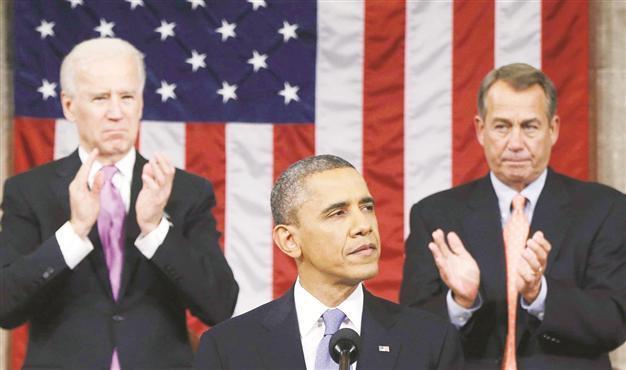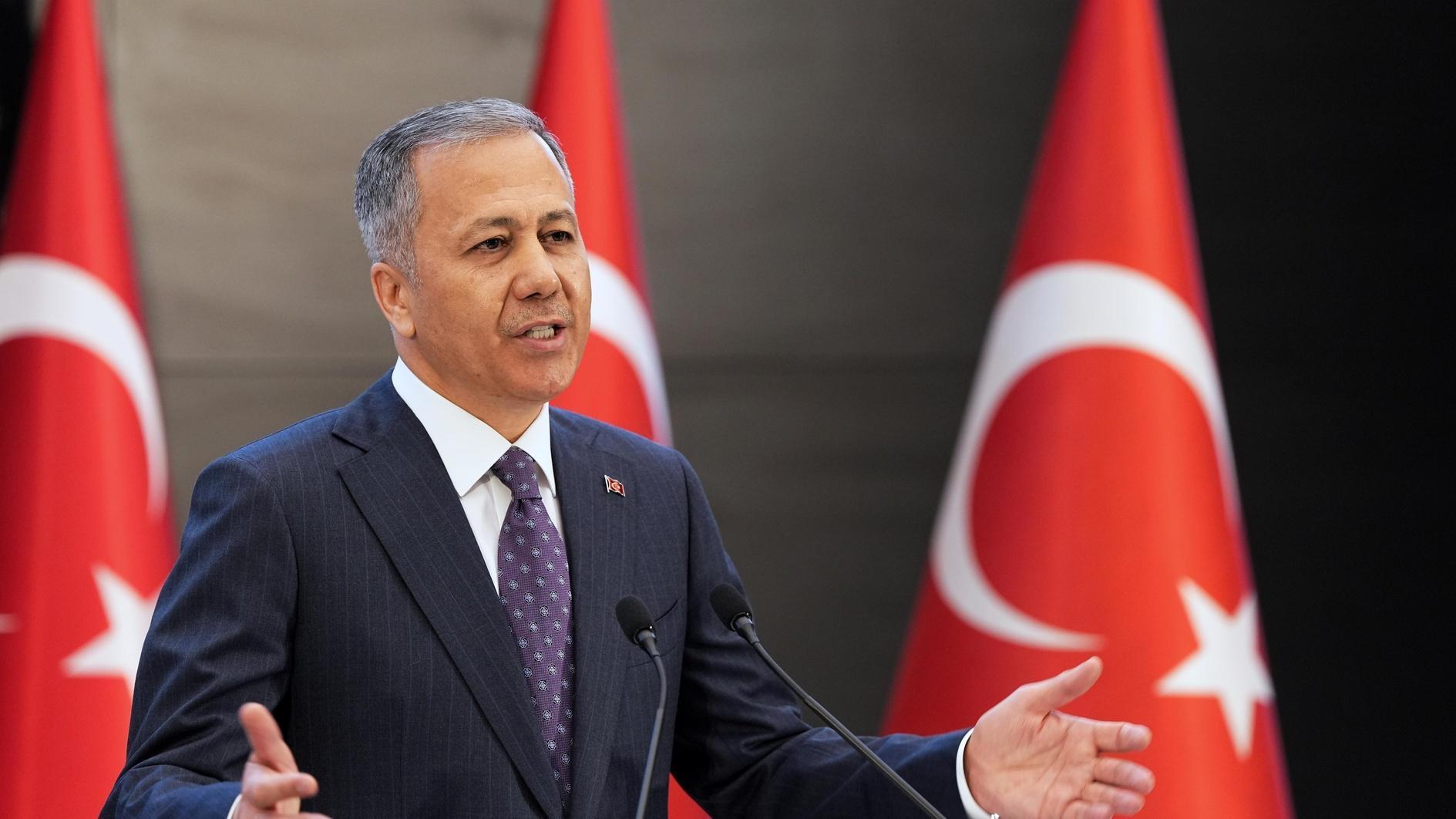A new focus on the economy in State of the Union speech
WASHINGTON - Reuters

US House Speaker John Boehner (R) and Vice President Joe Biden (L) stand to applaud as President Barack Obama delivers his State of the Union speech on Capitol Hill in Washington. REUTERS photo
U.S. President Barack Obama challenged a divided Congress on Feb. 12 to raise the minimum wage and make government work for “the many” in a State of the Union speech focused on economic fairness for the middle class as the Democrat takes a more assertive tack in his second term.Looking to use momentum from his re-election victory, Obama vowed to turn much of his attention toward economic troubles like the 7.9 percent unemployment rate, an issue that dogged his first four years as president.While he offered few concessions to Republican demands for spending cuts, Obama backed higher taxes for the wealthy and a $50 billion spending plan to create jobs by rebuilding degraded roads and bridges.
Obama outlined plans to withdraw 34,000 of the 66,000 U.S. troops in Afghanistan over the next year and called anew for action on immigration reform at home. But the central emphasis of his speech was to “build new ladders of opportunity” for the middle class.
“It is our unfinished task to make sure that this government works on behalf of the many, and not just the few,” Obama told hundreds of lawmakers and officials gathered before him in the well of the House of Representatives.His address to a joint session of Congress came in the midst of yet another bitter battle with Republicans over taxes and spending, and this tussle cast a heavy shadow over his appearance.
Narrow opportunities
Obama reserved his toughest words to urge a resolution to a festering budget battle that will result in automatic, deep spending cuts known as “sequestration” at the end of the month unless a deal can be reached.
Americans, he said, do not expect government to solve every problem, “but they do expect us to put the nation’s interests before party. They do expect us to forge reasonable compromises where we can.”
Many of his proposals may face a difficult path getting through Congress. He proposed raising the U.S. minimum wage for workers from $7.25 to $9 an hour. Republicans typically oppose increases in the minimum wage out of worry it will prompt businesses to fire workers.
He backed a $50 billion program to fund infrastructure rebuilding projects like fixing aging bridges, but many Republicans are adamantly against such stimulative government spending after Obama’s first-term $787 billion stimulus did not lead to a dramatic reversal in the unemployment rate.
“Our economy is adding jobs, but too many people still can’t find full-time employment,” he said.
“Corporate profits have rocketed to all-time highs, but for more than a decade, wages and incomes have barely budged.”
Obama said that to offset the cuts he would like to raise $800 billion in revenue by eliminating tax loopholes enjoyed mostly by the wealthiest Americans.It is a proposal Boehner backed before he reluctantly agreed instead to higher income tax rates on the richest to avert a fiscal crisis.
















